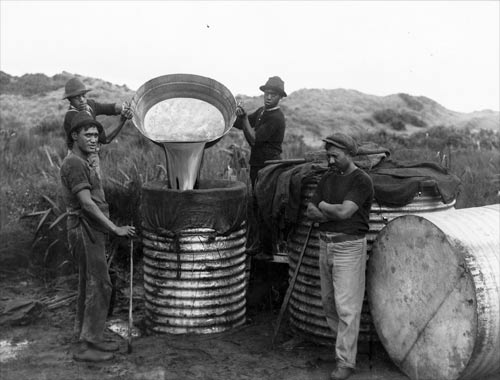Dear Readers:
We continue reading this piece from Komsomolskaya Pravda. The author is Evgeny Chernykh. The title of the piece is:
The Heritage of the USSR Was Squirelled Away in Offshores
Recall that French economist Thomas Piketty, along with two other colleagues, penned a monograph describing how the specific method of restoring capitalism in Russia, has resulted in a huge theft of the national wealth, and subsequently resulted in a nation that has the greatest income inequality in the entire world.

Exactly 100 years ago, in 1917, Russia embarked on a unique experiment (aka Communism), intended to do away, once and all, with the curse of human inequality. A curse which has haunted mankind ever since groups of people began separating into social classes; with some small groups of people “owning” the riches of our planet, and the vast majority of others assigned to labor for those self-appointed or hereditary owners. The irony is that Russia, the cradle of Communism, today holds the world’s record in income inequality. Is this simply the inevitable Dialectic at work? Or is it due to less mystical reasons, such as the specific manner in which privatization was carried out in the 1990’s? Was it due to human decisions, human greed, and human folly? Or any of a series of rhetorical questions?
Despite the Mikado’s brutal rule, Japan is an egalitarian society.
The rest of the KP piece comprises Chernykh’s interview with Russian analyst Elena Larina, author of a book entitled “How to survive the War of the Elites”. Larina: 71% of all the personal assets in Russia belong to 1% of the wealthiest Russians. For comparison, with the latter number remaining 1%:
In India the corresponding number is 49%. In Africa taken as a whole, the indicator is 44%, in the United States a relatively egalitarian 37% (!); in China and Europe 32%. Japan comes out as the most egalitarian nation, at 17%.
These numbers are somewhat subjective, she warns. However, most economic analysts are in agreement that Russia (along with China, India and Brazil) enters in the list of most unequal nations, in terms of asset ownership. Russia is also noted for having a 5% elite which owns up to 82.5% of all the personal wealth in the nation.
And still another dubious distinction: There are 96 Russian billionaires who own 30% of all the personal assets of Russian citizens. This is 15 times higher than the world average.

Billionaire Boys Club – Russian style
And these numbers are just the ones on paper and recorded by world financial institutions. These are the legal numbers. In reality, the situation is most likely even worse, because these numbers don’t reflect the illegal export of capital out of Russia. During the years 1992-2016 a minimum of $1.7 trillion dollars was stolen out of Russia via illegal financial schemes, including a specific scheme which Larina explains, the English translation is “Transfer Pricing”. This term might mean something to Economics students. The Russian term is Трансфертное ценообразование — Russian wiki defines it as a delivery of goods or services between mutually-dependent parties at an internally-discounted price that is other than the market price. The main goal is to avoid paying taxes on the transfer.
Before continuing with the Larina interview, I wish to adduce a quote from a famous American work of literature, see if you can guess what it is. This quote, I believe, encapsulates the essence of where that mysterious thing called “wealth” comes from. Despite all attempts to mystify wealth and surround with obscure financial schemes, in essence, wealth is something that comes from the Earth. Or, in this particular case, from the Sea:

New Bedford was built on whale oil.
(…) New Bedford is a queer place. Had it not been for us whalemen, that tract of land would this day perhaps have been in as howling condition as the coast of Labrador. As it is, parts of her back country are enough to frighten one, they look so bony. The town itself is perhaps the dearest place to live in, in all New England. It is a land of oil, true enough: but not like Canaan; a land, also, of corn and wine. The streets do not run with milk; nor in the spring-time do they pave them with fresh eggs. Yet, in spite of this, nowhere in all America will you find more patrician-like houses; parks and gardens more opulent, than in New Bedford. Whence came they? how planted upon this once scraggy scoria of a country? Go and gaze upon the iron emblematical harpoons round yonder lofty mansion, and your question will be answered. Yes; all these brave houses and flowery gardens came from the Atlantic, Pacific, and Indian oceans. One and all, they were harpooned and dragged up hither from the bottom of the sea. (….)
In New Bedford, fathers, they say, give whales for dowers to their daughters, and portion off their nieces with a few porpoises a-piece. You must go to New Bedford to see a brilliant wedding; for, they say, they have reservoirs of oil in every house, and every night recklessly burn their lengths in spermaceti candles.
And continuing this thought… Just as whale meat was packed away and salted; and the whale oil siphoned off into barrels and shipped off — so too Russian natural resources were sliced off the carcass, salted or smoked, pickled, poured, syphoned away, and shipped to offshore banks, but now in the form of pieces of paper. Or even more abstractly, digital numbers stored in computers.
[to be continued]
